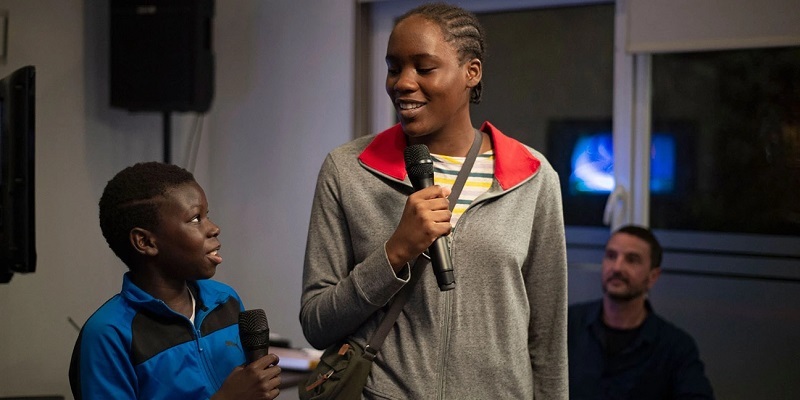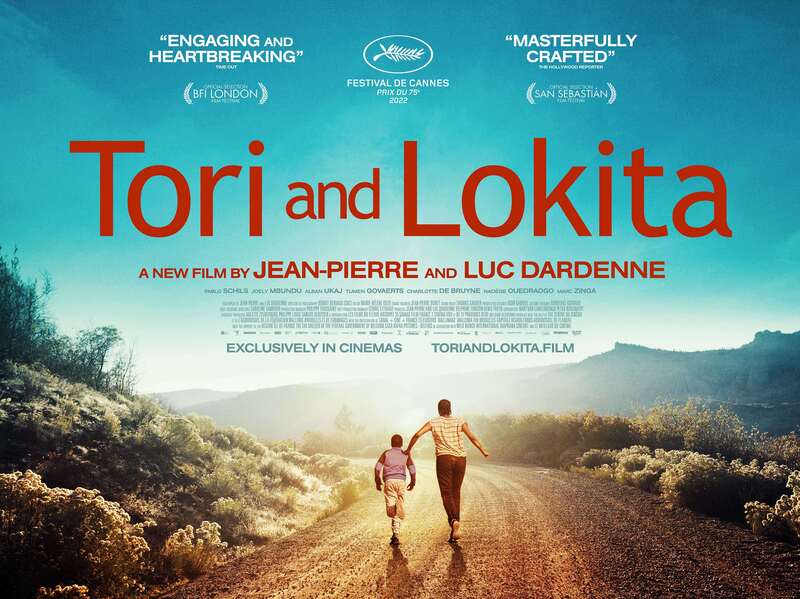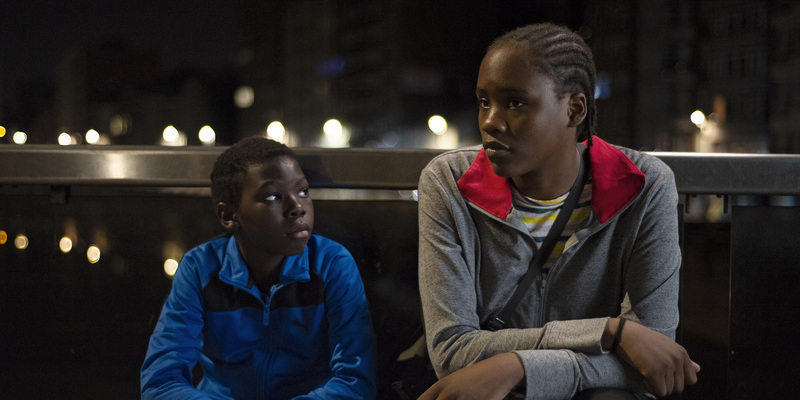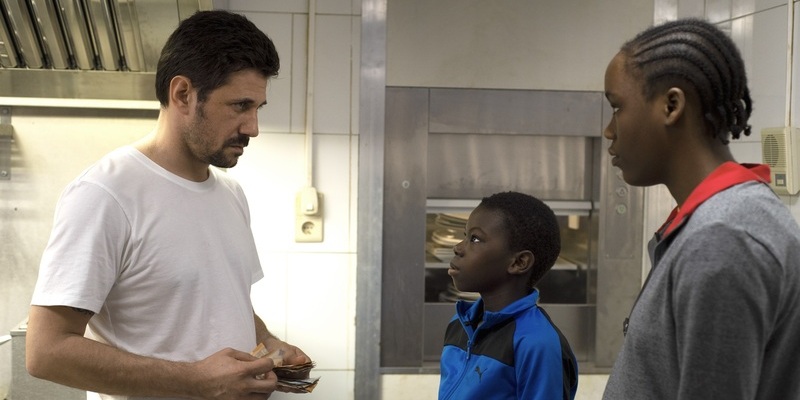
Review by
Benjamin Poole
Directed by: Jean-Pierre Dardenne, Luc Dardenne
Starring: Pablo Schils, Joely Mbundu, Charlotte De Bruyne, Tijmen Govaerts, Alban Ukaj, Marc Zinga

In 2021, there were a total of 19,265 asylum applications in Belgium, a
figure which had almost tripled over the last decade of the European
migrant crisis. Of that number, around 41% of applicants successfully
qualified for asylum in Belgium. So, about a third got in, with two
thirds either deported or more likely living underground as part of the
gig economy, along with the significant amount of other asylum seekers
who remain unrecorded. Reports suggest that the figure will rise before
the end of this year, which will further catalyse Belgium’s ‘major
refugee crisis’: the European Court of Human Rights has already
sanctioned the Federal Government for its lack of care shown to asylum
seekers. Yes, the situation is pretty bleak. But here’s the latest film
from Luc and Jean-Pierre Dardenne,
Tori and Lokita. Hopefully it will provide some much needed cheer in these times of
human suffering and uncertainty.
Fat chance.

The Dardenne Brothers, with their background in documentary and staunch
left-wing ideologies, create naturalistic films with strong social
messages: narratives which are intensely researched, shot with a verité
eye, and which challenge both their audience and the status quo. An
actual law regarding labour protection for young workers was named after
their film Rosetta, a cheering reminder that art can influence and guide social
discourse. In Tori and Lokita the Dardennes focus on two
child asylum seekers, the eponymous Tori (Pablo Schils) a boy of
about 10, and Lokita (Mbundu Joely), his around-fifteenish
‘sister’. The two are not related but met on the boat from Benin, and
with Tori’s ‘protected’ status, are working together to bolster the
chances of Lokita staying. They study hard and engage with the ongoing
bureaucracy of their migrant status, but, however, are sadly privy to
the criminal excesses of the aforementioned gig economy. One evening,
following an unbearably sweet karaoke session from the two in a Liège
restaurant (which reinforces the naivety of the pair), the
establishment’s chef taps up the pair to distribute drugs for him under
the guise of pizza delivery.

This is the just beginning of a sequence of exploitation that eventually
sees Lokita imprisoned and working in isolation on a weed farm. Along
the way, she will be blackmailed into sexual acts by her imprisoners,
who turn the illegality of her situation to their advantage, essentially
making her a child sex worker. Lokita’s lack of papers means that she is
unable to obtain gainful employment, and so, to send money home to her
family, she is given little recourse but to be lassoed into this vicious
circle. Could there be a stronger argument for more humane protection of
migrants, and for the legalisation of controlled substances (which would
cut out unscrupulous middlemen, and, if taxed appropriately high, could
bolster anyone’s economy; after all, the market forces which encourage
cheaper and cheaper product evidently leads to scared kids exhorted into
cheap labour, working for scum whom I’m sure we’d all rather didn’t get
rich)? Thankfully, the rape scenes occur just off screen, and the prior
moments are filmed with a dead eyed stoicism to exemplify the lazy evil
of these profiteers: there is nothing particularly sexual or desirous in
the act, they impose on Lokita because they know they can.

There have been critical grumbles that the Dardennes are merely covering
old ground with Tori and Lokita, repeating themselves with a narrative bearing similarity to previous
works. To those reviewers I say, what you fucking on about? This is what
they do! And they do it to perfection. Unlike their British counterpart,
Ken Loach, there is a lack of hyperbole in their production, an absence
of sentimentality. What, you want them to diversify into science-fiction
or something? Get real. With its clear-headed depiction of lazy human
cruelty, its un-sensationalised presentation of existing situations, it
feels almost churlish to ‘review’ Tori and Lokita, a film as accomplished as it is essential in its informative
rhetoric.

Tori and Lokita is on UK/ROI
VOD now.
